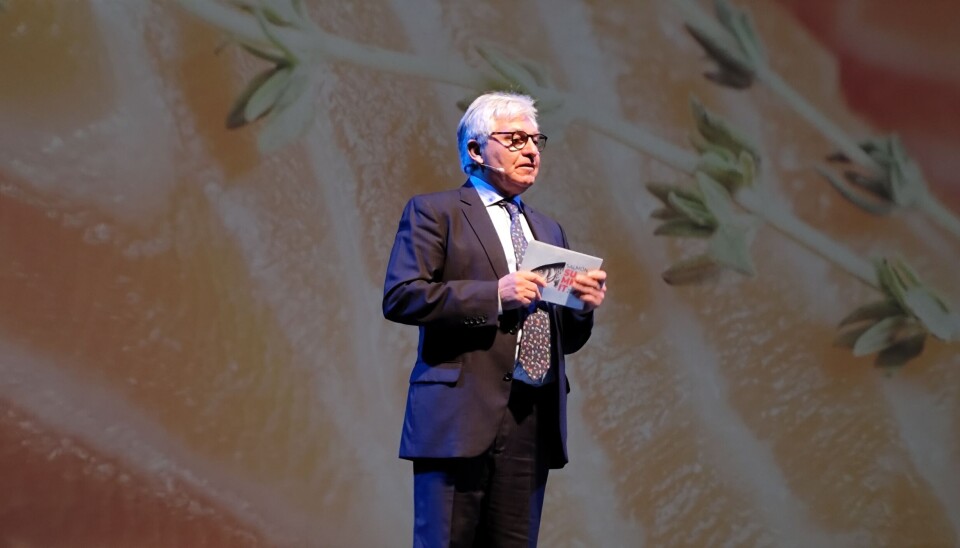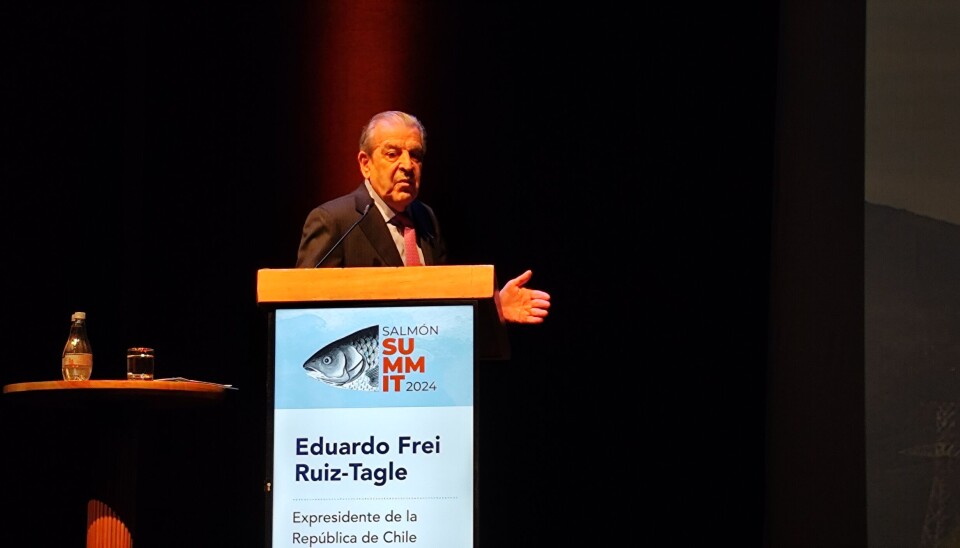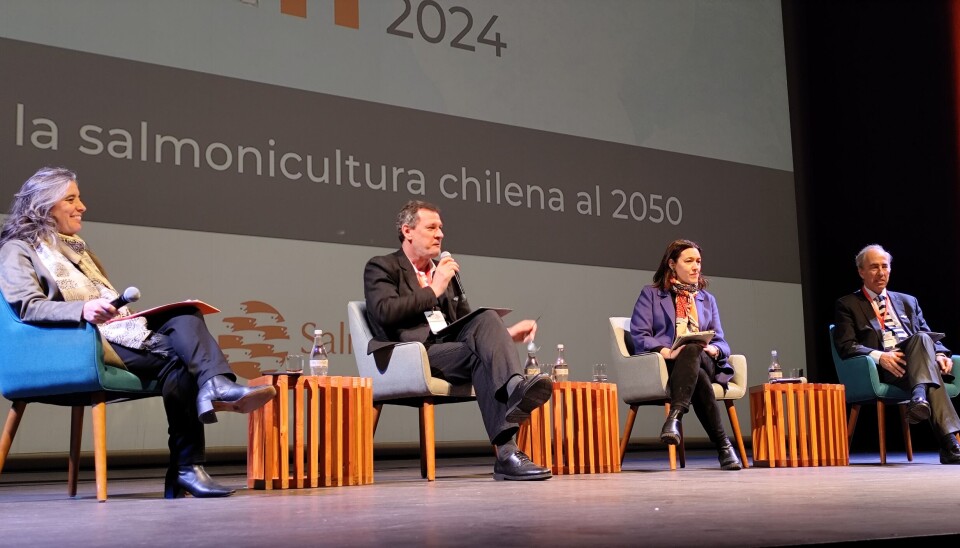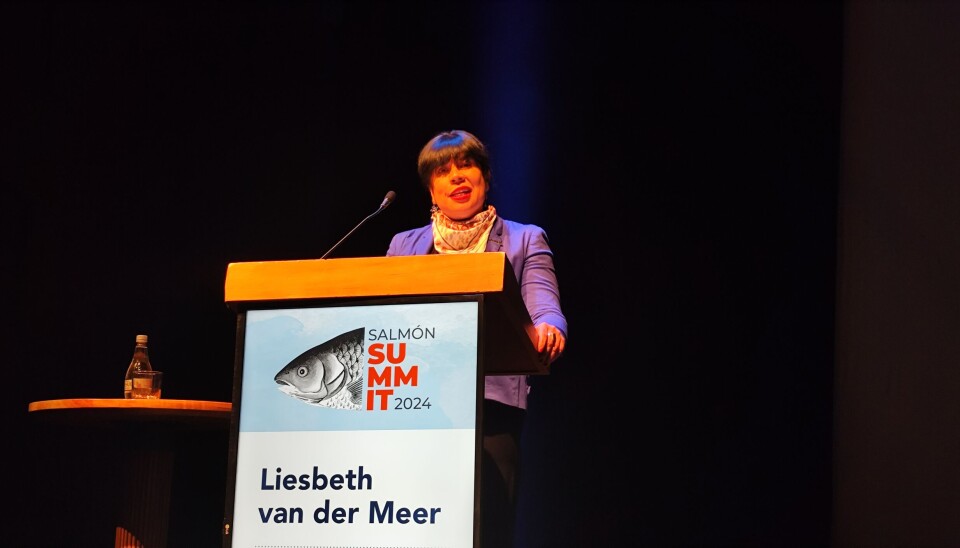
The need to develop a long-term strategy for Chilean salmon farming
In order to propose a future vision for this sector, bringing together all perspectives, the Salmon Summit 2024 was held, where it was requested not to make the sector disappear but to enhance it.
More than 1,200 people were part of the first edition of "Salmon Summit 2024: Empowering Chilean Salmon Farming to 2050", an event held at the Teatro del Lago in Frutillar and organized by SalmonChile, with the goal of understanding various perspectives on this productive sector and thus contributing to the development of public policies in the future.
Arturo Clément, president of the salmon farming guild, was in charge of opening the space for conversation and analysis, recounting the development of salmon farming over the last 40 years, currently being the second largest exporting industry in Chile and the main activity in the southern region, generating well-being and opportunities for its people.







"We want to project ourselves and grow responsibly towards 2050, we do not want our activity to disappear or diminish, we want to be heard, to dialogue and, in this way, contribute to the growth of Chile. Unfortunately, there are many negative signals, a lack of trust, understanding, and knowledge of what we do. We need certainties to be able to move forward. There is a misunderstanding of the value of our industry, a disregard for the people of the south, and we are being suffocated by the competition," Clément stated.
The first block of the day was led by the former President of the Republic, Eduardo Frei Ruiz-Tagle, who gave a masterful talk addressing the challenges and opportunities of salmon farming,
In the opinion of the former president, who provided concrete figures on demographic and economic growth, as well as development initiatives in the southern macrozone of the country thanks to salmon farming, "the salmon industry has been the engine of growth in southern Chile for the last 30 years, without receiving any state subsidy. This has been built by the region, the entrepreneurs, the workers, the institutions, among others, but without a penny from the State. Are we going to stop it, are we going to halt it, are we going to complicate it? Salmon farming needs to double in the next 30 years and is equipped to do so. It has the people and it has the investments to do it." Likewise, at the close of his speech, Frei Ruiz-Tagle called on the actors in the salmon farming industry to be active participants in the discussion of a new General Law of Aquaculture, pointing out that "we cannot accept that they destroy this with a bad law of Aquaculture".
Development
Subsequently, the Director of Studies and Projects at SalmonChile, Marcela Bravo, moderated a panel to discuss salmon farming, economic development, and social welfare, which included the President of the Confederation of Production and Commerce (CPC), Ricardo Mewes; the President of the National Commission for Evaluation and Productivity, Raphael Bergoeing, and the President of the Business Council of Sistema B Chile, Josefa Monge.
Finally, the President of the Business Council of Sistema B Chile, Josefa Monge, stated that "we are very pleased that such a large industry, with so much potential and so many challenges, is asking itself how it wants to be seen in the coming years and is taking on the challenges through dialogue, without excluding anyone. We see here people from the union world, the environmental world, the political world, things that seem very interesting and valuable to me."
The professional emphasized that "companies that are not thinking about their circularity, their regeneration methods, and all the new forms of sustainability, are outdated and will not be able to reach the year 2050".
For his part, the President of the National Commission for Evaluation and Productivity, Raphael Bergoeing, highlighted the role of the salmon farming industry, "in terms of looking beyond the cage itself. And the State has a fundamental responsibility regarding the discussion of permits, for example, which has been given to create a regulatory framework that allows investment to exist and be an investment that also converses with the public interest. I believe that this can happen and we are moving in that direction. These are instances that allow different actors, from different places, to participate by contrasting opinions in order to improve the regulation and achieve a truly sustainable industry that continues to contribute, not only as it has done so far, but going forward in the rest of the country to the economy".
In this regard, the economist specified that a national policy for the development of this productive sector is required in the long term. “However, it is the State that has to set the rules and call upon the actors who are knowledgeable about this industry, both in Chile and abroad, and the scientists, in order to commit to a national development policy that is sustainable for the industry.”
Regarding the development of salmon farming, the president of the CPC, Ricardo Mewes, stated that “the State must be a partner of the private sector. Instead of generating and placing obstacles to development, to entrepreneurship, or merely focusing on basically four productive sectors, we also need to take care of those other sectors that need the impulse, the support, the backing of the government, so that all the productive sectors of the country can go out to export and face the great competition we have, due to the trade agreements that Chile has signed. We need to be a whole, that is, the country, the government, the entrepreneurs, the civil society, all must row towards the same goal, and this is done together, with a strong public-private partnership, that allows us to conquer the markets for which Chile competes permanently.”
Sustainability
“Environmental Sustainability: Salmon Farming and environmental care are compatible” was the title of the second block, which featured a presentation by the executive director of ONG Oceana Chile, Liesbeth van der Meer, who analyzed the use of antibiotics in salmon farming, as well as issues of escapes, overproduction, and transparency. She emphasized that although the NGO and the industry have different visions, they are not opposed, thus valuing the meeting as a space to respectfully confront different viewpoints.
Subsequently, the presentation by the general manager of Biomar Chile, Derek Kohn, took place, who discussed the “Trends in Aquaculture: Feeding a Sustainable Future”. According to the executive, sustainability is not binary but a process that requires commitments from all stakeholders.
"Salmon farming in Chile is already on this path. Undoubtedly, we still have a long way to go, but we are on the right track. However, without a regulatory framework adapted to the current needs of the industry, the journey becomes more difficult. Therefore, the regulatory framework must allow us to grow, the industry needs to be able to grow, but we are not achieving it. Nevertheless, we should be proud of the industry because it has a future. The world wants more salmon and we have a tremendous opportunity if we do it right," Kohn pointed out.
Closing the segment, Guido Girardi, Executive Vice President of the Future Encounters Foundation, focused on how aquaculture is a strategic opportunity for Chile in the 21st century and on the importance of this protein in global nutrition, one of the main problems in the future due to climate change.
"Opening the conversation in a country that does not converse, which is polarized and has no time to think, is very important. Here we need new thinking. I have the feeling that salmon farming has advanced, improved, but can still do much more for the good of salmon farming itself, the country, and productivity increase. When an activity loses 15% of the product as a result of environmental problems, which translate into diseases, which also forces it to use antibiotics as a palliative, because if there were no environmental problems there would be no need to use so many antibiotics, it would generate more wealth, more credibility, more social license, there would be more development, more employment and there would not be the suspicion that currently exists in society, often unjust," emphasized the former senator.
The former parliamentarian emphasized that "salmon, even under these conditions, has fewer global impacts than, for example, beef consumption, which also affects the planet and people's health. In contrast, the aquaculture world has the best proteins, the best fatty acids, and the best fibers, if you add algae. So it has a huge potential to feed the planet".
Before the closing, the last block of the event took place, where the conversation focused on the question "How to enhance salmon farming by 2050 in Chile?", in which participated the former Minister of Defense, Vivianne Blanlot; the general secretary of Sofofa, Rodrigo Yáñez; the academic director of the Master in Public Policy at the University of Chile, Óscar Landerretche, and the director of the Interdisciplinary Center for Aquaculture Research (Incar), Renato Quiñones.
Finally, Arturo Clément highlighted the value of the meeting for the salmon farming sector. "All our expectations were exceeded in terms of the quality of the panelists and the quality of the conversation. The presentations were so robust that they allowed us to analyze and envision a much more powerful future for salmon farming by 2050. As a guild, we have the task of generating a long-term vision for salmon farming. We are already working on this and are able to invite stakeholders, government representatives, and state agencies to develop a long-term strategy for salmon farming and aquaculture in general."


















